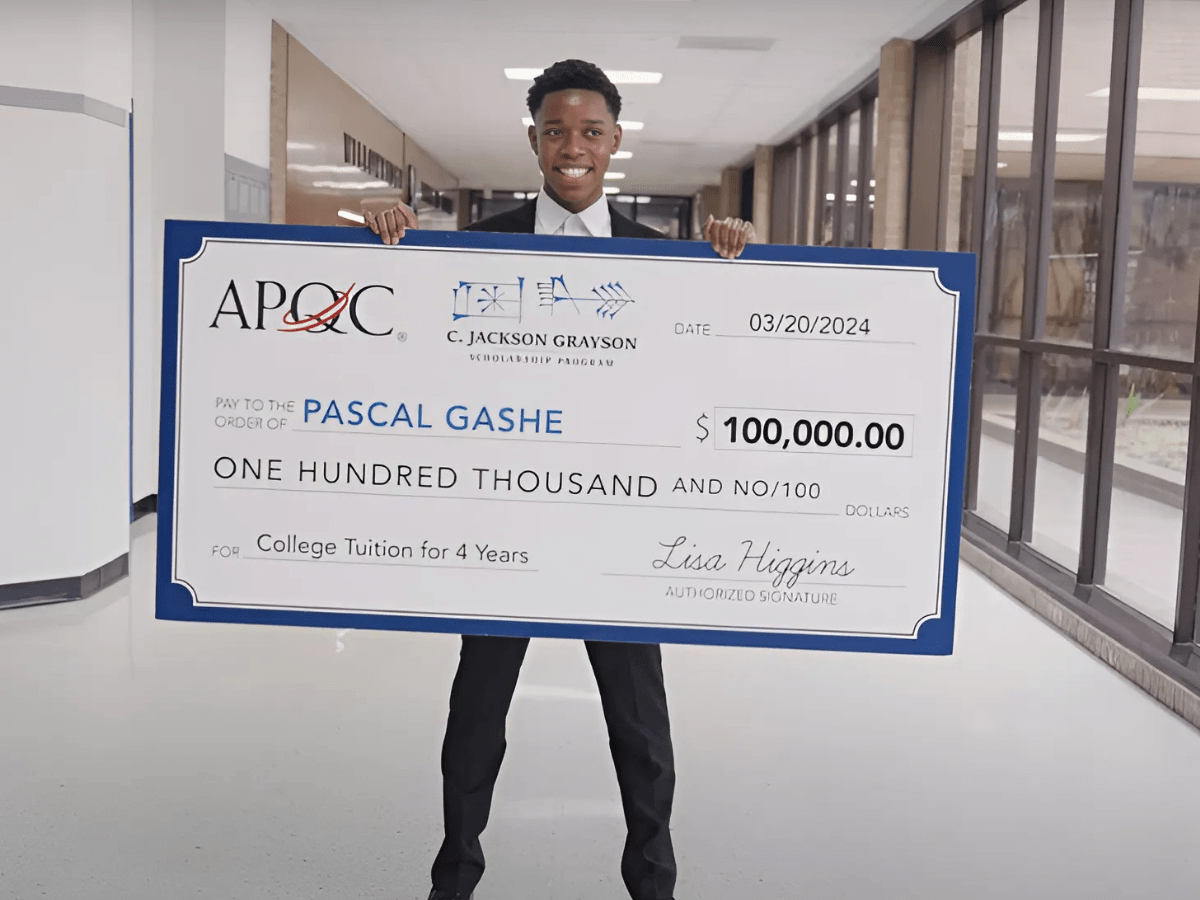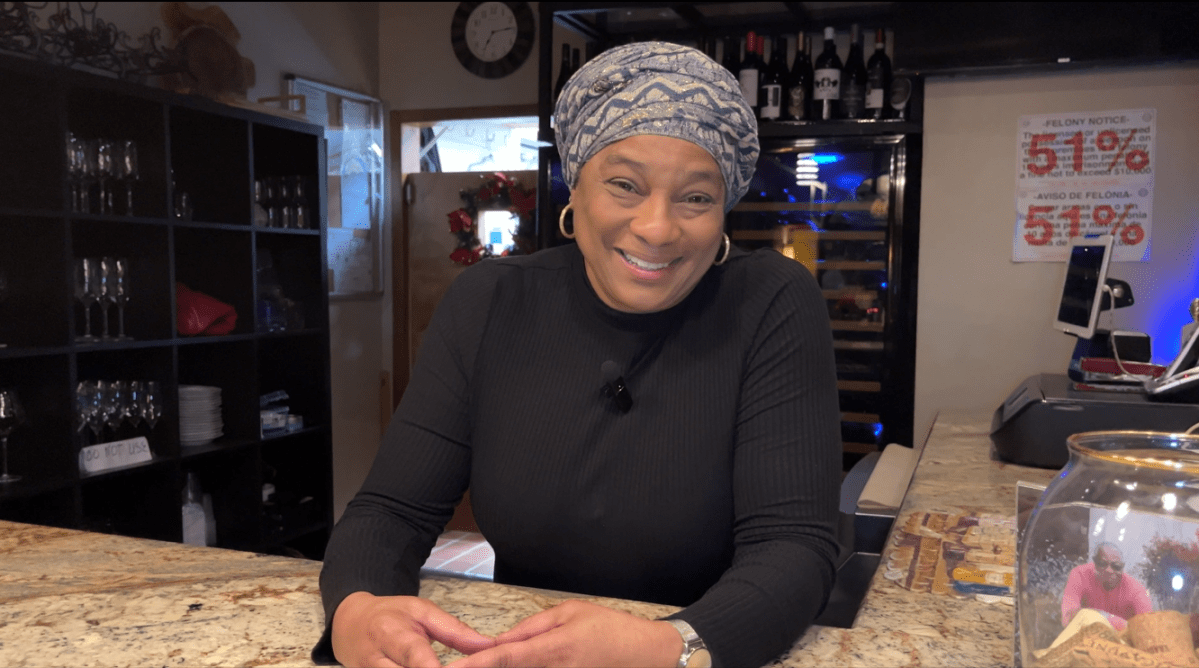Sister Mama Sonya, whose real name is Sonya Lucas-Roberts, is a multi-talented woman. She is a novelist, writer, poet, activist, motivational speaker, gospel minister, and storyteller whose works combine tales from the South, the African diaspora, and the historic Third Ward.
Although she was born in Universal City, Texas, her words have spread throughout Ghana, West Africa, the Bahamas, Bermuda, and the United States.
Despite approaching her 70th birthday, Lucas-Roberts has the same vitality. She went to Jack Yates High School, Lanier Middle School, and Lockhart Elementary School in HISD. She also obtained a Juris Doctor from the University of Texas School of Law and a Bachelor of Arts in Political Science from the University of Houston.
“Those Black teachers taught us that we were the best when we were in elementary school,” she said. that we are superior than everyone else. And we are capable of anything. And we thought we were the brightest thing that had ever happened when we left that school.
Lucas-Roberts spoke positively of her early years, stating that her parents gave her and her two sisters a safe haven where they could grow up.
“We laughed and had a good time in our house,” she said. Mom and Dad set a good example. We were constantly active in the community.
She participates in a number of community organizations, such as the Third Ward Community Cloth Cooperative, the University Museum at Texas Southern University, and the Houston and Disproportionality Advisory Committee.
She met Craig L. Roberts at a gospel group and has been married to him for 40 years. Shanice Ede, their daughter, was adopted by them both.
She is lovable, stubborn, and strong-willed. adores her neighborhood! Roberts stated.
She now thinks that living in a community means you have to work there.
“You have no right to complain if you’re going to live in the community and you don’t take action to improve it,” she remarked.
Lucas-Roberts has consistently provided words of encouragement to her community, according to her friend P.K. McCary. She established the Sisters CD (Controlling diabetic), for instance, a network of diabetic support groups that educates and empowers women of color who have the disease. She has shared her personal experiences in order to offer her support.
Her remarks have never been merely platitudes. As a reminder that the warmth of love lessens suffering, they have remained resilient through storms and shone brightly through the rain. A Houston-based artist, educator, and social activist named P.K. McCary remarked, “She spreads hope, faith, and words divine, inspired by her love of the Son shine.”
Sister Mama Sonya s childhood
Every year, Lucas-Roberts’ mother, a music teacher at Houston ISD, took her kids to the Ebony Fashion Fair, the orchestra, and symphonies. Her father, who referred to himself as a bootleg social worker and began his career as a coffee mixer, transported them to areas with a low concentration of Black people.
Lucas-Roberts, my mother used to tell us that you should never, ever allow somebody to make you feel inferior. As Black kids growing up, we were aware that you had to be smarter than everyone else. We all excelled academically, and Mama instilled in us a passion for both people and ourselves through knowledge.
Her uncle, Reverend Albert A. Lucas, was the pastor of the Good Hope Missionary Baptist Church, where Lucas-Roberts frequently reflects on her time there. In November 1939, he was also elected president of the NAACP’s Houston chapter.
Her perspective on life was altered by her upbringing. However, for Lucas-Roberts, the year of the March on Washington in 1963 was crucial. She was also reminded by her mother of the bombing of the 16th Street Baptist Church, where four girls were killed by a local KKK plot.
She added that although her mother did not want her to watch the news on TV, her father insisted that she learn about history by experiencing it firsthand. “Mama said, I would sit and watch the news and just cry uncontrollably,” she claimed. I firmly believe that I embody the spirit of those four girls, and I simply cannot fathom how somebody could bomb a church.
During the S. H. A. P. E. Community Center’s Freedom Tour, Lucas-Roberts encountered Sarah Collins, the sister of one of the four girls who lost an eye but survived the 1963 16th Street Baptist Church bombing. Collins complimented her passionately after she recited a poem about the experience. The high point of my career, she remarked, was reciting that poetry in front of Sarah.
Lucas-Roberts took on case management while in law school because she preferred working in the community. She works with children living with HIV and those affected by Hurricane Katrina.
I ve seen racism upfront
When a group of Black parents and kids filed a complaint in February 1956 alleging that HISD maintained a parallel public school system by overlapping racially divided attendance zones, Lucas-Roberts recalls the Houston Independent School District v. Delores Ross litigation. Even though the case was resolved in 1981, Lucas-Roberts thinks there are still problems with the educational system.
Black teachers were sent to the white schools, and white teachers were sent to the black schools. According to her, that was meant to demonstrate integration. In order to avoid having to attend our school, some of the white parents planned to create the Westheimer School District specifically for white pupils.
One of the few Black kids at Lanier Middle School, Lucas-Roberts recalls her Black peers wanting to try out for a cheerleading position. She recalls that even though it was clear that the Black kids had won, none of them were included on the team when the results were revealed.
She claimed to have witnessed racism up front.
Life as a playwright
The Three Sisters in the Spirit Theatre Ministry was founded by Lucas-Roberts and her sisters, Bronwyn and the late Lorenita Lucas, with the goal of using edutainment to raise awareness of spirituality, adoption, abstinence, self-esteem, and women’s health.
Sisters at the Cross, a play that tackles women’s difficulties, is the work of which she is most proud. When the women arrive at the Bible study gathering, they see a table covered in African cloth. From the table, the women are asked to select an object that represents their journey.
She clarified that the woman who attempted suicide takes up a gun. The woman who used painkillers for her persistent pain gets better. The victim of sexual assault took up a prop scarf. The conceited woman picks up a mirror. The woman who refuses to engage in gossip answers the phone.
According to Lucas-Roberts, the play attempts to illustrate women’s problems. After talking about them, they affix the object to the cross that is suspended above. After the performance, the audience was given a pencil and a heart by the team, and they were instructed to write anything they wanted to leave on the cross.
Health activism
In addition to her artistic endeavors, Lucas-Roberts is a national advocate for women battling heart disease. In 2018, she became a Community Ambassador for the Texas Heart Institute. She also received her diploma at the Mayo Clinic’s 17th annual WomenHeart Science & Leadership Symposium.
In addition, she has Type II diabetes, which has caused her to have three toes amputated—two in 2024 and one in 2019. As a result, she started a support group for women of color who had gone through similar things.
In 2004, she also released Sweet Sensations for the Spirit, a book that details the difficulties of having diabetes.
A regular speaker at HISD board meetings
HISD was attended by all three of the Lucas sisters. Lucas-Roberts was motivated to speak out against the Texas Education Agency’s (TEA) takeover of HISD by her experience working in the Houston public school system.
“We should all have equal access to an equitable education in public schools because not everyone can afford to attend private schools,” she remarked. And for that reason, I keep fighting.because I had such a good foundation in school, and I know what a good education could do, then everybody should have access to that.
She also believes that using tests to gauge a student s capability doesn t measure the right things, particularly how brilliant they are at something. She also disagrees with HISD Superintendent Mike Miles New Education (NES) curriculum and the lack of libraries in those campuses.
We have minority children who are being denied the love of books, she said. Me and my sisters, we learned how to read when we were three years old we were already reading If you don t know books, then you re not gonna know how to love books.







